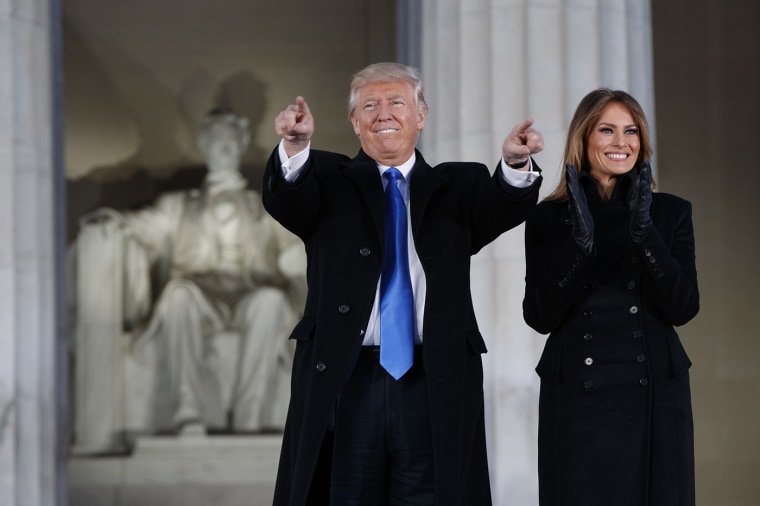For decades, new presidents have routinely issued proclamations to coincide with their inaugurations. As
USA Today noted, George H.W. Bush, for example, proclaimed a "National Day of Prayer and Thanksgiving" soon after he took the oath of office in 1989.In
subsequent inaugural years, Bill Clinton declared a "National Day of Fellowship and Hope" in 1993 and a "National Day of Hope and Renewal" in 1997; George W. Bush, echoing his father, declared a "National Day of Prayer and Thanksgiving" in 2001; and President Obama declared a "National Day of Reconciliation and Renewal" in 2009 and the "National Day of Hope and Resolve" in 2013.As the
Washington Post noted, Donald Trump went in a slightly different direction.
President Trump has officially declared the day of his inauguration a national day of patriotism.... On Monday, the paperwork was filed with the federal government declaring officially that Jan. 20, 2017 -- the day of Trump's inauguration -- would officially be known as the "National Day of Patriotic Devotion.""Now, therefore, I, Donald J. Trump, president of the United States of America, by virtue of the authority vested in me by the Constitution and the laws of the United States, do hereby proclaim Jan. 20, 2017, as National Day of Patriotic Devotion, in order to strengthen our bonds to each other and to our country -- and to renew the duties of government to the people," the order says.
The timing of this was a little off: On Jan. 23, the new president issued a proclamation retroactively declaring Jan. 20 a "National Day of Patriotic Devotion."But even putting that aside, the specific phrase adopted by the Trump White House was a curious phrase.
The Atlantic had
a good piece on this noting that "patriotic devotion" sounds "vaguely compulsory."
"Patriotic Devotion" is itself a phrase with a decidedly martial ring. The last president to declare a Day of Patriotic Devotion was Woodrow Wilson, marking the enactment of a draft for World War One. In 1943, when Congress attempted to establish December 7 as a day to recognize the "patriotic devotion" of members of the armed forces, FDR vetoed the bill. "I think that a more suitable date can be selected for this purpose," he wrote.The president's critics felt much the same about his decision to declare his own inauguration a holiday. If, as the proclamation declared, its intent was " to strengthen our bonds to each other," it ended up having the opposite effect—serving as one more point of division.
As always, political rhetoric is best considered in the context of those responsible for it, which is likely why Trump's declaration struck a dissonant note. After all, the new president has made no secret of his flirtations with
authoritarian thinking -- he's offered hearty praise for Vladimir Putin, Saddam Hussein, and China's handling of the Tiananmen Square massacre -- so when he starts using phrases like "patriotic devotion," it's bound to raise eyebrows.
